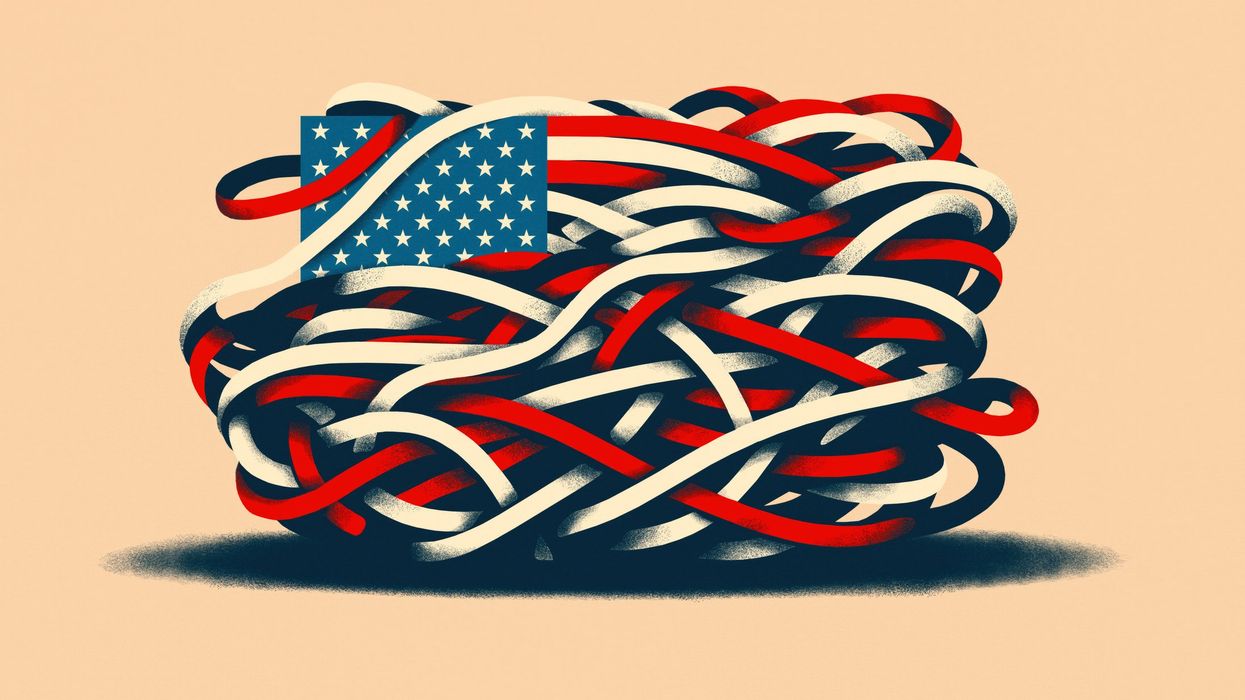It is hard enough to promote or save democracy when the public is relatively united in its desire to do so. The experience of the “color revolutions” in former Soviet Republics offers powerful evidence for that proposition. It may seem almost impossible to do so when much of the public is disillusioned with the democratic system in which they live or when they are, at best, indifferent.
Sadly, it looks like this is the situation now facing the United States.
We are in a moment when, at first glance, it seems that democracy must be saved from the people, not by them. We have seen such moments before.
Only this time, in our era, it is not clear that there is anyone but the people who can save democracy. This might seem an impossible dream, given the many stories that suggest they are not ready to take on that task.
On Saturday, for example, the New York Times published the results of an Ipsos poll that found widespread dissatisfaction with the performance of our political system. Its topline finding: 88% of Americans believe it is “broken”; 59% think it has been broken “for decades.”
In a politically polarized era, the views of members of the two political parties were quite similar. 89% of Democrats and 91% of Republicans think the system is broken.
Other findings about the public’s view of our governmental system were almost as gloomy. 60% agree with the statement that “The government is almost always wasteful and inefficient.” 72% say that “The government is mostly working to benefit itself and the elites.”
Only 30% believe that “The economic system in this country is generally fair to most Americans.”
And, at the start of President Trump’s term, the Times reports that 51% of people are either pessimistic, worried, or both, as they contemplate the next four years.
Other polls have found similar dissatisfaction and pessimism. For example, a June 2024 survey by the Pew Research Center reports a steep decline in satisfaction with American democracy since 2021. In that study, 68% of the respondents said they were dissatisfied with the way democracy is currently working.
None of this suggests that the American public will be easily mobilized in the cause of saving democracy in this country. That would not have surprised the people who founded our Constitutional Republic. In fact, they thought that democracy needed to be saved from the people, with its preservation entrusted to a cadre of their betters.
Writing about the democracies of the ancient world, James Madison said they were “spectacles of turbulence and contention…incompatible with personal security or the rights of property….” Representative democracy, in contrast, would “refine and enlarge the public views, by passing them through the medium of a chosen body of citizens, whose wisdom may best discern the true interest of their country, and whose patriotism and love of justice will be least likely to sacrifice it to temporary or partial considerations.”
“Under such a regulation,” Madison continued, “it may well happen that the public voice, pronounced by the representatives of the people, will be more consonant to the public good than if pronounced by the people themselves….”
Representatives, Madison believed, would be more rational and more respectful of norms and institutions than the people themselves. They would preserve popular government by refining democracy itself.
Fast forward to the middle of the twentieth century when a generation of political scientists echoed in their time what Madison said in his. Like him, they tried to convince the American public that the only way to save democracy for the people was to save it from them.
Yale’s Robert Dahl, perhaps the leading political scientist of his time, praised the kind of political division of labor envisioned by Madison. The role of the public was to elect representatives and leave them to do the work of governing in the public’s interest.
When he wrote, Dahl thought there was a democratic creed in this country, one shared by citizens and their representatives. But in terms of the intensity of their commitment to that creed, Dahl, like Madison, trusted political leaders more than the people themselves.
And few were more articulate about what he called “the moral distinctiveness of representative government” than the distinguished political theorist George Kateb. Unlike Dahl, Kateb offers what he calls a “non-Madison defense” of representative institutions.
Representative democracy, in Kateb’s view, “is committed to respecting the boundaries of the individual, and the related separation of society and state; yet it establishes a mutual moral permeability between public and nonpublic. In contrast, direct democracy effaces boundaries and separations while subjecting everything to the public political imperative. This imperative repels the exploration of possibilities in nonpublic life that the spirit of representative democracy fosters.”
Representative democracy, Kateb explains, saves the people from the “continuous and all absorbing…life of citizenship” that democracy demands.
What unites Madison, Dahl, and Kateb is their shared belief that democracy needs to be saved from the people by political leaders.
But in 2024, can anyone who has watched what happens in Washington, D.C. believe that our representatives will save us? To watch them, as Jeffrey Rosen puts it, is to live “James Madison’s nightmare.” It is to witness “ideological warfare between parties that directly channels the passions of their most extreme constituents and donors—precisely the type of factionalism the Founders abhorred.”
And today, as we enter an era in which as former President Biden observed, “an oligarchy is taking shape in America of extreme wealth, power, and influence that literally threatens our entire democracy, our basic rights, and freedom and a fair shot for everyone to get ahead,” who will stand up for democratic government in any form?
It seems clearer now than ever that if American democracy is to be saved, it will have to be the people themselves who do it. The first step requires that all of us put aside, or suspend, our disappointments and the democratic disillusionment so vividly registered in the Ipsos poll.
Once we do so, we can begin the civic action needed to reform our institutions. Joining groups working to improve democracy, speaking out when leaders take anti-democratic actions, and committing ourselves to the long-term work needed to preserve democracy will be more important than ever.
As we do this work, we can take as our guiding star what Winston Churchill said in November 1947: “Many forms of Government have been tried and will be tried in this world of sin and woe. No one pretends that democracy is perfect or all-wise. Indeed, it has been said that democracy is the worst form of Government except for all those other forms that have been tried from time to time.…”
Austin Sarat is the William Nelson Cromwell professor of jurisprudence and political science at Amherst College.




















